The successful women embracing ‘girl power’
- Published
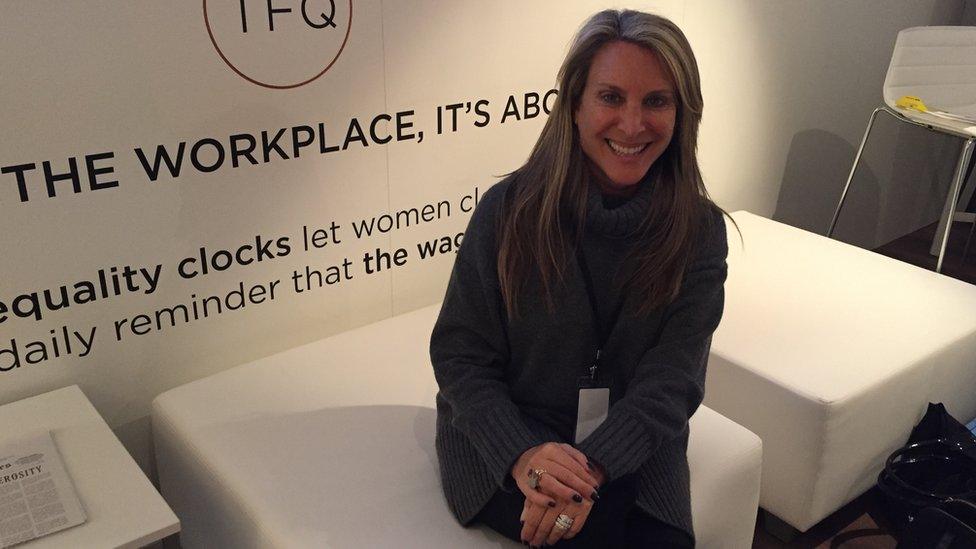
Shelley Zalis says "trying to be a man is a waste of a woman"
"Embrace your inner girl" is not a phrase you'll hear very often, particularly in the macho world of business where "manning up" is more de rigueur.
Yet if you attend any major business conference this year, then you're likely to come across "The Girls' Lounge".
It might sound like a name dreamt up by an unimaginative spa owner or an all-female pop-band, but in reality it's a professional networking space for women.
On the eve of the World Economic Forum in Davos - a place where male attendees outnumber females five to one, the space is just being prepared.
A peek through the windows show that it's all white sofas and cushions, some adorned with glitter pink writing. The decor is soft and unashamedly feminine.
Lounges at previous conferences have included beauty treatments, such as face masks and manicures.
Aside from the patronising use of the word "girl", surely the idea that women need a separate mingling space, and such a stereotypically feminine one to boot, is doing little to further the case for female equality?
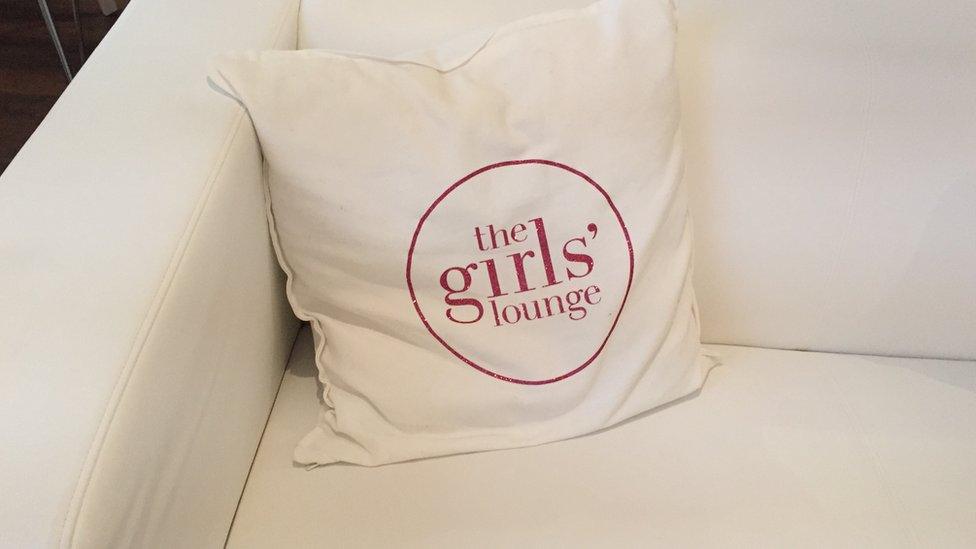
The Girls' Lounge includes cushions with pink glitter writing
Shelley Zalis - who started The Girls' Lounge five years ago - is unapologetic:
"This is their boys' club - for women to get to know other women.
"There are masculine and feminine styles of leadership and we encourage women to find and lead with their strengths. We need both [styles] or we're all the same," she says.
Changing a mindset
Ms Zalis resolutely refuses to apologise for using the word "girl", arguing the word "woman" is too associated with the traditional hierarchy where female leaders conform to male leadership styles.
Beyond Ms Zalis' deliberately provocative and attention-grabbing approach, her point is that women need to take on leadership in whichever way they choose, not emulating the male, institutional model.
"We have to stop fixing the women. We have to fix our mindset and recalibrate our mindset on equality and understand men and women are all equal. Until society and corporations value the individual strengths of each person we won't progress," she says.
And in The Girls' Lounge, underneath the seemingly fluffy interior, there's plenty of hard facts.
In it, for example, there are ten clocks from various countries. Based on a nine to five day, they point to the time a woman should leave work according to the wage gap in the country.

At the World Economic Forum in Davos, male attendees outnumber female by five to one
The US clock points to 3.20pm, highlighting the fact that women there earn only 79% of what men earn.
To make the same point, men in the Girls' Lounge are charged $1 for a bar of chocolate, while women pay 79 cents.
While Ms Zalis' initial aim was simply to provide a space for women to feel less isolated at male dominated business events, the Girls' Lounge now hosts serious talks on addressing inequality and has attracted some heavyweight commercial partners including Unilever and Google.
The Girls' Lounge is part of The Female Quotient, the firm founded by Ms Zalis which aims to advance workplace equality.
The firm has conducted research for consumer goods giant Unilever showing the extent to which underlying bias is holding back progress on the issue.
The study, published on Tuesday, showed that not only do an overwhelming 77% of men believe that a man is the best choice to lead an important project, but also the majority (55%) of women.
More so, men and women overwhelmingly believe that men don't want women in top corporate positions, according to the research, which interviewed more than 9,000 men and women across eight markets.
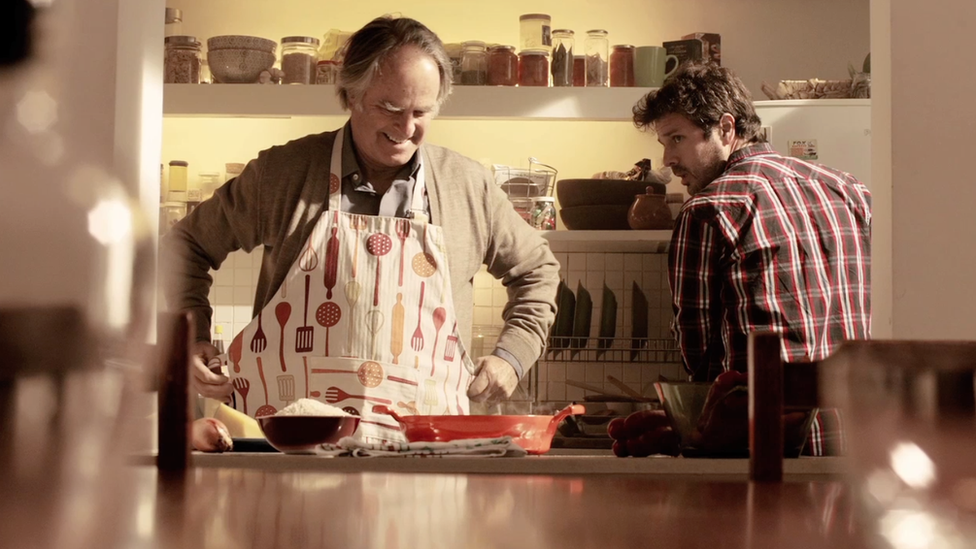
Unilever changed its adverts last year to make them less gender stereo-typed
Unilever's chief marketing officer Keith Weed said the poll pinpointed how traditional beliefs and norms were still holding back women's progress.
"Men have intellectually bought into [the] whole area of gender inequality, but acting on it there's still a long way to go. We are holding stereotypes in our head that we fit people into," he said.
Mr Weed said addressing the issue was not just "a moral issue but an economic issue".
The firm, behind more than 400 brands from Ben & Jerry's ice-cream to Dove soap, last year pledged to remove sexist stereotypes from its own ads.
Mr Weed said while it was too early to measure the impact of this change, its previous research had shown that progressive ads were 12% more effective.
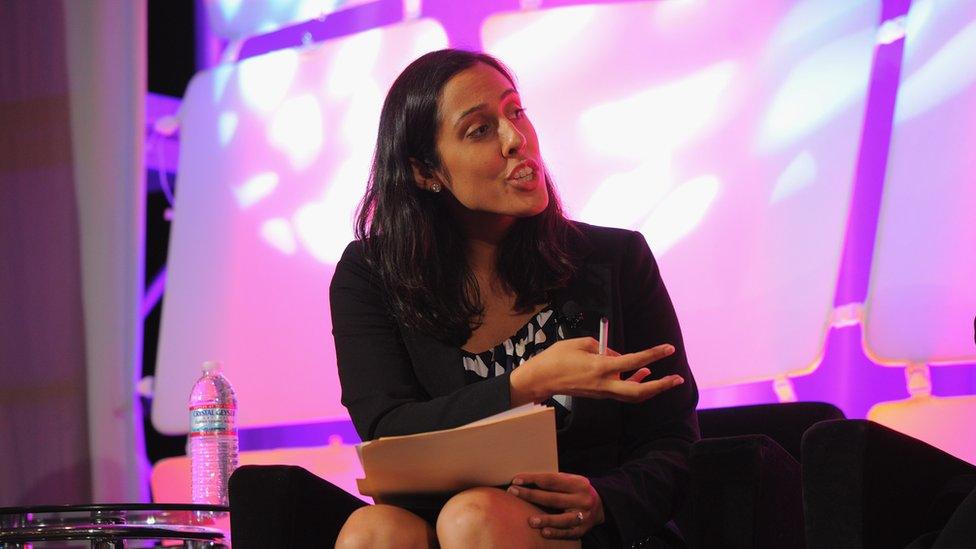
Erica Dhawan is optimistic about the future of gender equality
Yet, Erica Dhawan, a female chief executive of consultancy Cotential, perhaps offers some hope.
In her thirties, she says she identifies herself as part of several groups: a millennial, an Indian American, and has never thought there's anything that either women or men could do better.
"We can't solve age old problems with old solutions. We need to redefine inclusion in today's modern world and by bringing new perspectives we can improve gender equality. I'm extremely optimistic I believe we need to broaden the conversation.
Ms Zalis also believes the new corporations which have emerged in the past couple of decades, such as the tech giants such as Facebook and Google, could help to adjust the balance.
"Most traditional corporations were founded over 100 years ago when women weren't in the workplace. Newer firms have equality in their DNA," she says.
Hopefully that heralds a future where there will be no need for a girls or boys club but just clubs.
- Published16 January 2017
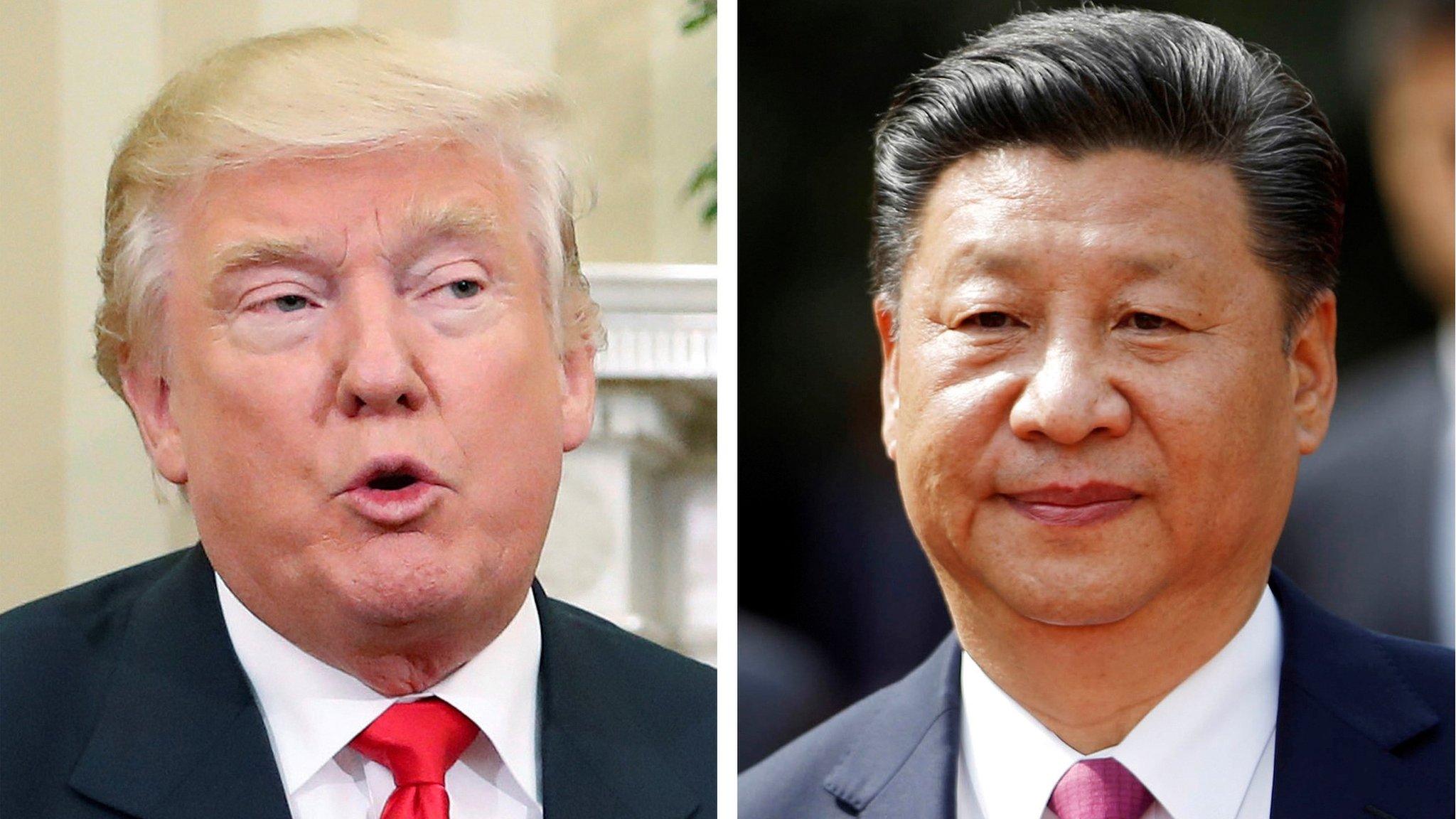
- Published16 January 2017
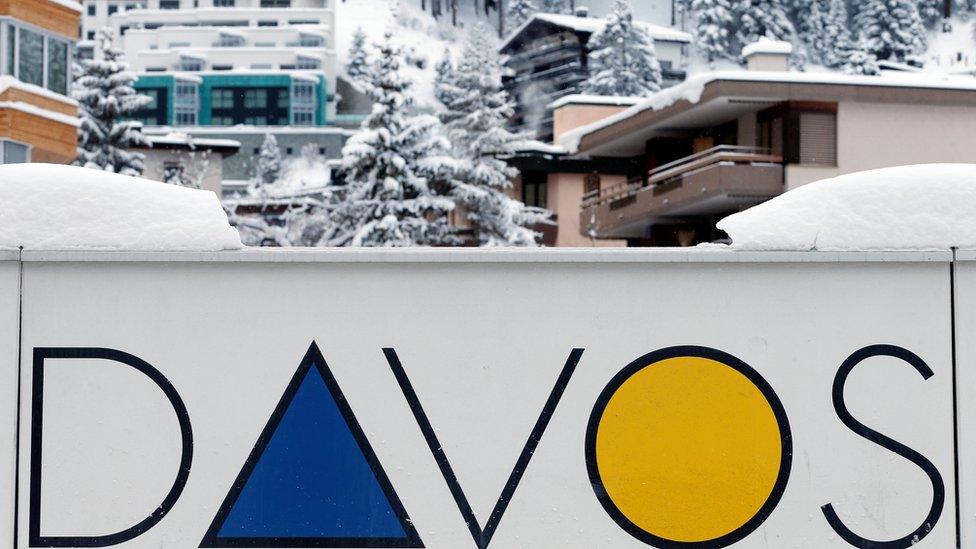
- Published16 January 2017